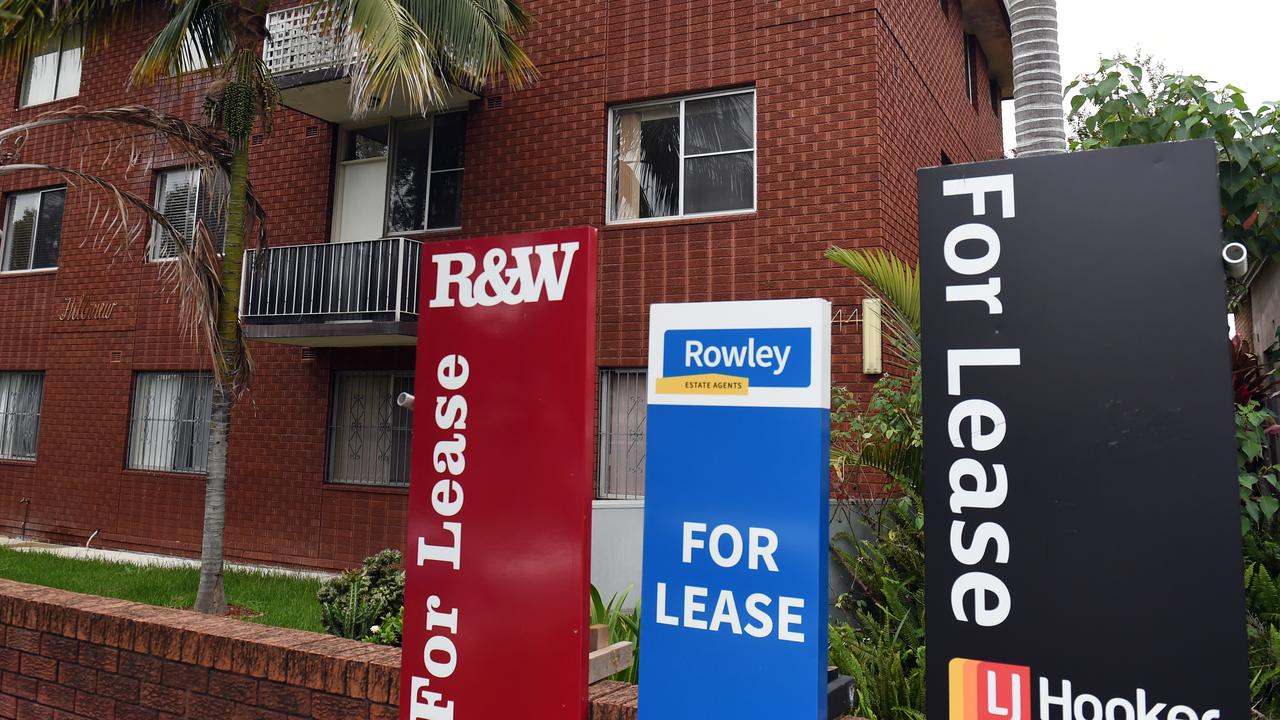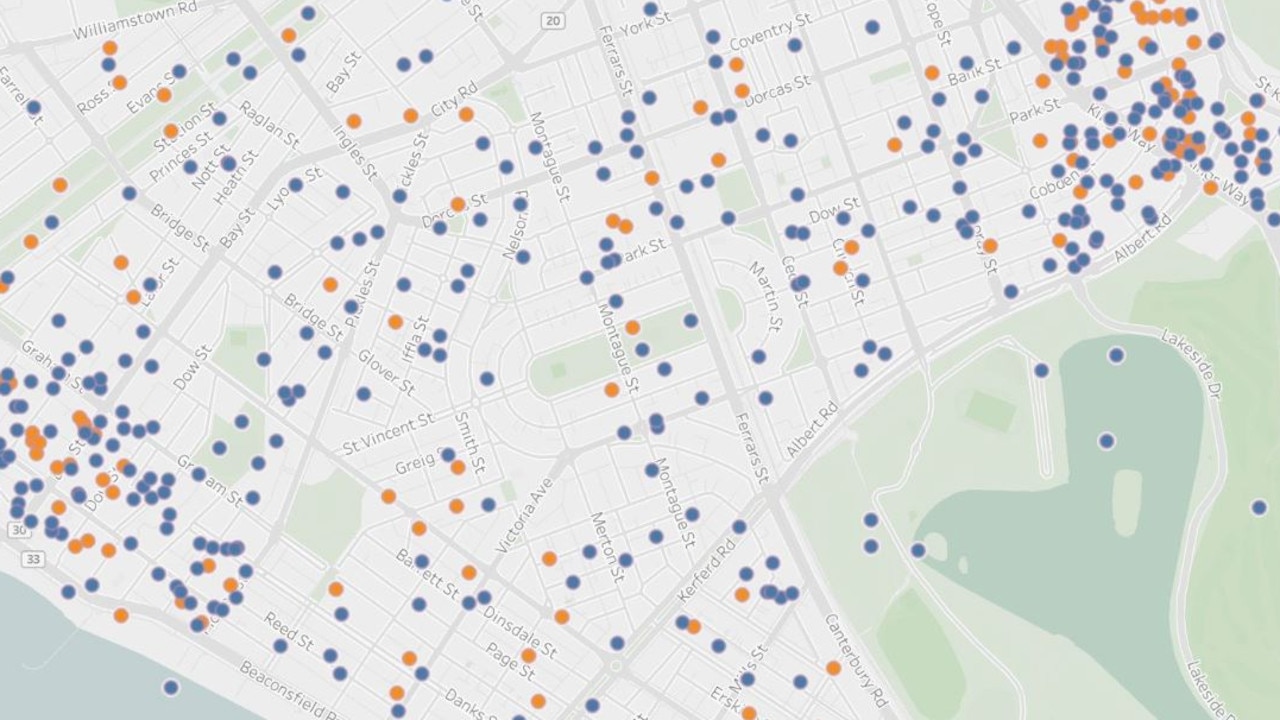‘Striking’: What’s really causing Australia’s property disaster
Countless Aussies are suffering through a brutal housing crisis – but the true cause of the problem might not be what you think.

As Australia’s rental crisis goes from bad to worse, attention is increasingly turning to what’s driving the grim trend – and one group in particular tends to cop much of the blame.
Many Aussies have been pointing the finger at migrants, with a looming influx of arrivals – 400,000 in 2022-23– expected to significantly squeeze the strained housing market, pushing already sky-high house prices and rent even higher.
However, a viral tweet this week named a new possible culprit, reigniting the fierce debate once again.
RedBridge Group Australia director Kos Samaras recently took to Twitter to share a map of Airbnb properties, claiming it proved the platform and others like it were causing serious problems.

“Blame the gig economy. Not migrants,” he wrote.
“Back in 2019, Airbnb provided their data via an open source portal. When mapped out, it provided us with a striking visual on just how many homes were being reserved for this type of gig economy.
“Right down to the street level, we are able to see the massive number of homes that were not accessible to normal renters.”
While the data was several years old, Mr Samaras said he doubted things had changed significantly, and added; “Hence, why some conservatives again want you all to focus on migrants but not on those who make money from property”.
“We are experiencing a housing attainment crisis – brought to us by policies that have favoured investors, and NIMBYS,” he concluded.
Writing for The Conversation recently, the University of Sydney’s Professor of Urban and Regional Planning Nicole Gurran and Emeritus Professor Peter Phibbs agreed that Australia had taken a “light touch” when it came to short-term rental platforms.
“In comparison to much of the international regulation of the short-term rental market, Australia is very ‘light touch’. The overarching aim is to encourage the tourism economy,” they wrote.
“While this might have been appropriate five years ago when the rental market was in better shape, and long-term housing demand focused on inner city areas, the current crisis demands a new approach. Regulations must be tailored to the conditions of local housing markets, rather than the one-size-fits-all approach that exists today.
“More broadly, large-scale protections for renters, increased rental subsidies for low-income households and more construction of social housing is what’s really needed to solve Australia’s housing crisis.
“Preserving existing housing supply – and making better use of short-term accommodation during times of need – would also make an immediate difference for renters around the nation.”

However, Wendy Chamberlain from Chamberlain Property Advocates told news.com.au “pointing the finger at just one single factor” wasn’t the answer, as the issue was “far broader and not as simple as that”.
“Airbnb has been around for how many years now … but we’ve only got to the pointy end of the housing and rental crisis now in 2023,” she said.
“We are seeing a rental crisis at the moment because there’s not as much available housing, and that’s caused by a number of factors.”
She said rising interest rates were a major factor, as landlords passed costs on to renters to help pay the bills.
High stamp duty is another contributor, with many people looking to downsize put off by the tens of thousands of dollars they would have to fork out in order to move – particularly if they were asset-rich but cash-poor – which effectively holds up stock from entering the market.
Ms Chamberlain said various laws and regulations also pushed up ongoing costs for landlords, and that migration also played a role in the housing crisis.
“It’s narrow-minded to just pinpoint one particular aspect … real estate is a really finely balanced ecosystem,” she said.
Airbnb fights back
In February this year, Airbnb proposed introducing a “tourism levy” to help ease pressure on the rental market, which would see guests pay a small fee each night of their stay to go towards funding social housing and community projects.
Similar taxes already exist overseas in Barcelona, Valencia and Bali, where a small payment is added to a guest’s bill at certain tourism hot spots each night, with proceeds put aside for affordable housing and infrastructure development.
The idea followed calls for better regulation of short-term stays from money experts, real estate agents and the Victorian Greens in recent months, with critics claiming short-stay accommodation was removing housing options from long-term tenants who are being turned away in droves due to unprecedented demand.

Earlier this year, Victorian Greens spokeswoman for renters’ rights Gabrielle de Vietri also proposed a number of short-stay regulations to increase housing availability, including a 90-day cap on the number of nights annually a landlord could lease a short-term rental and a mandatory public register of short-stay operators.
However, online accommodation platforms Airbnb and Stayz have urged Australians to “stop scapegoating the industry”.
Meanwhile, according to Dr Thomas Sigler, Associate Professor of Urban and Economic Geography at the University of Queensland, short-term rentals form less than 3 per cent of the housing stock nationally.
And more than one million dwellings were empty nationally on census night last year, which both platforms suggested far exceeded the number of homes listed on their sites.
– with Rebecca Borg






